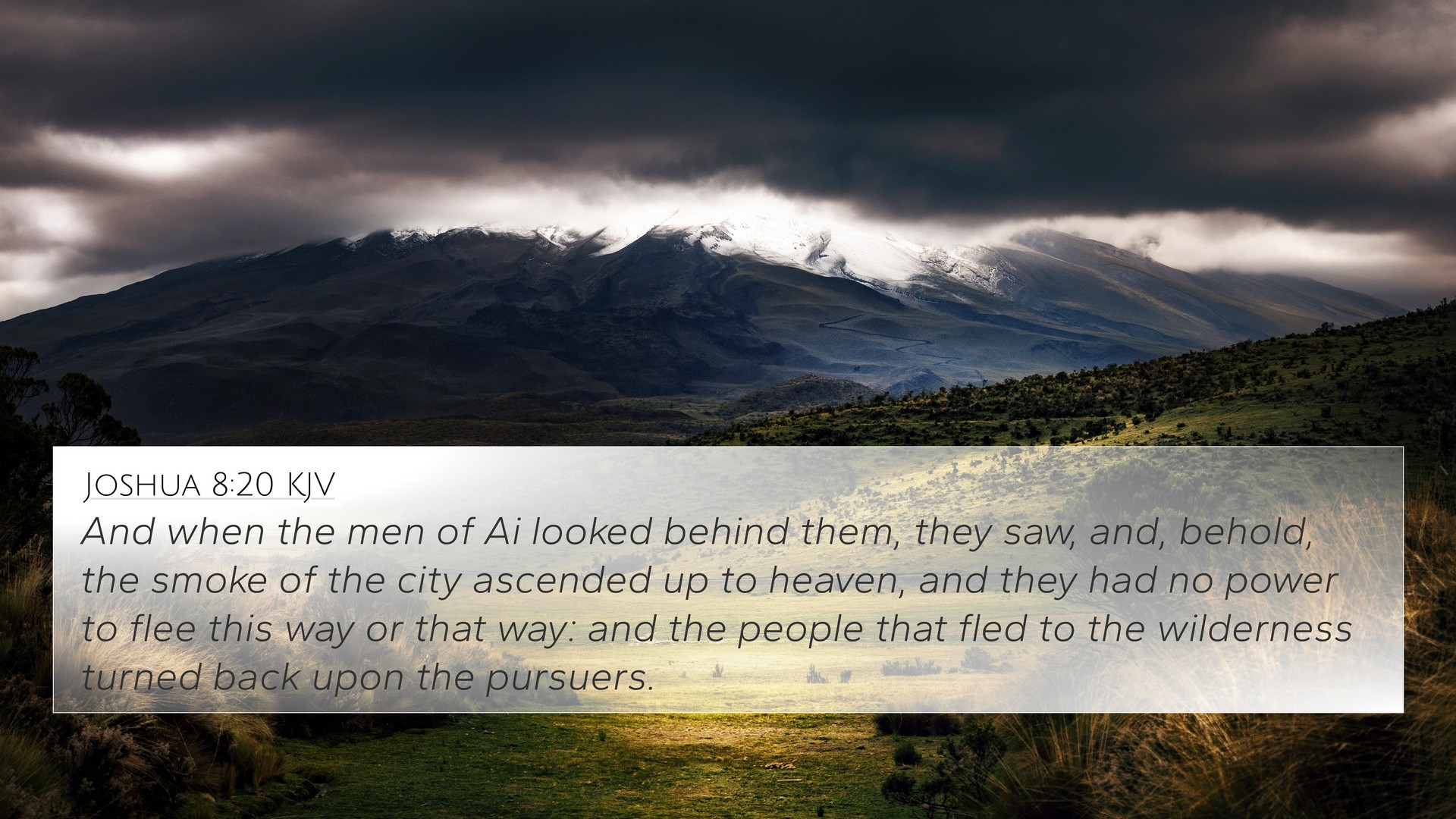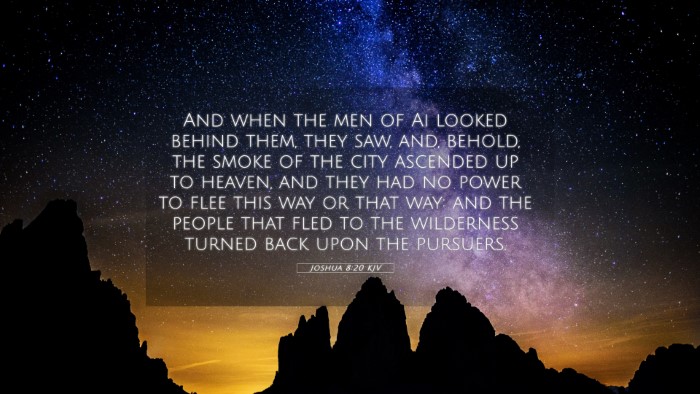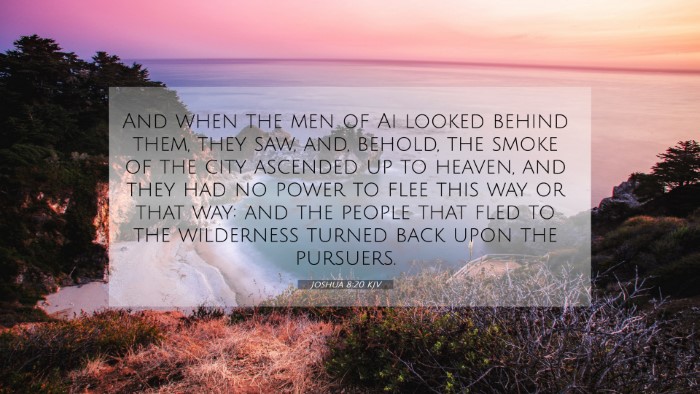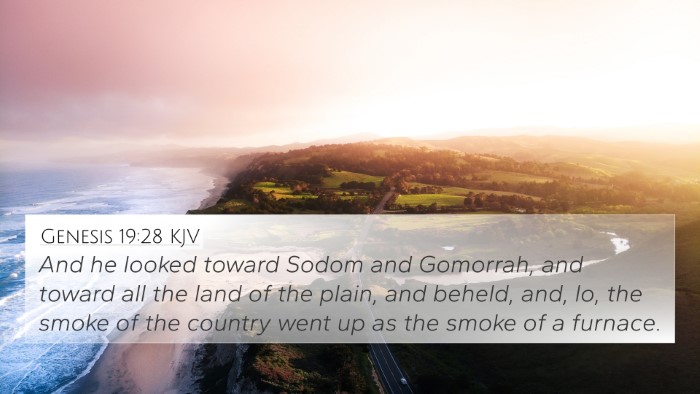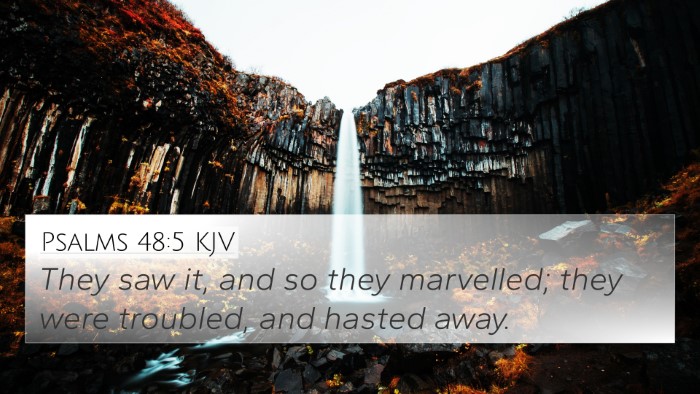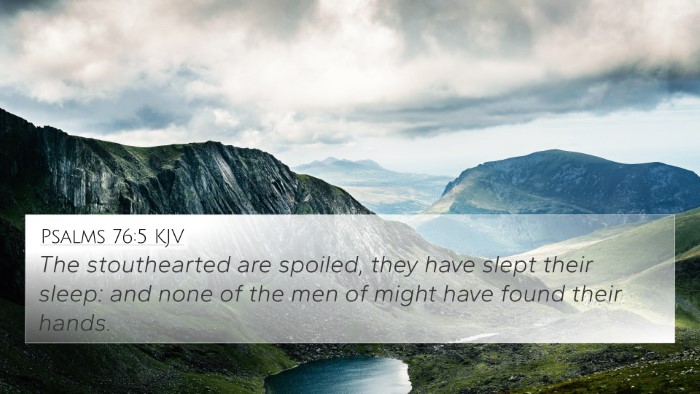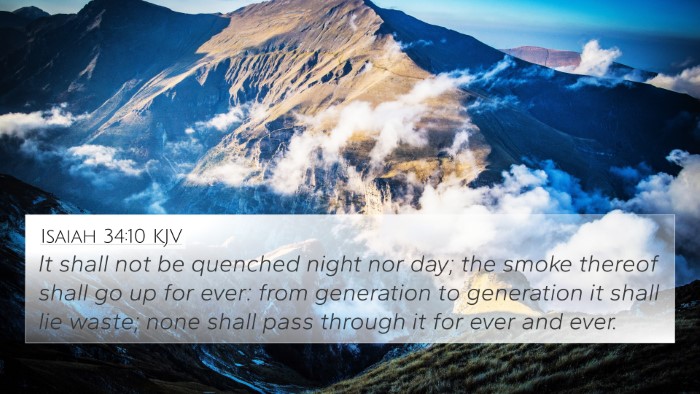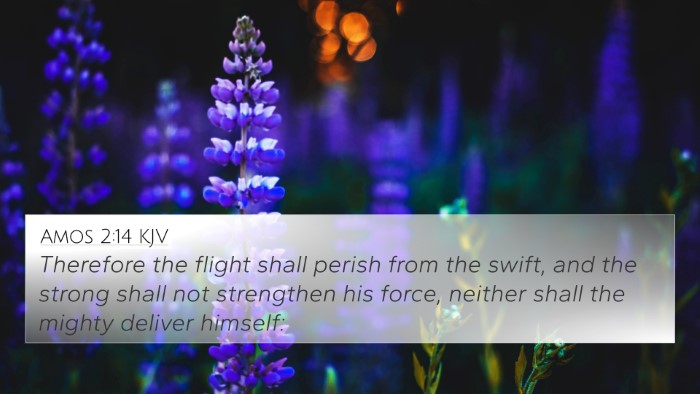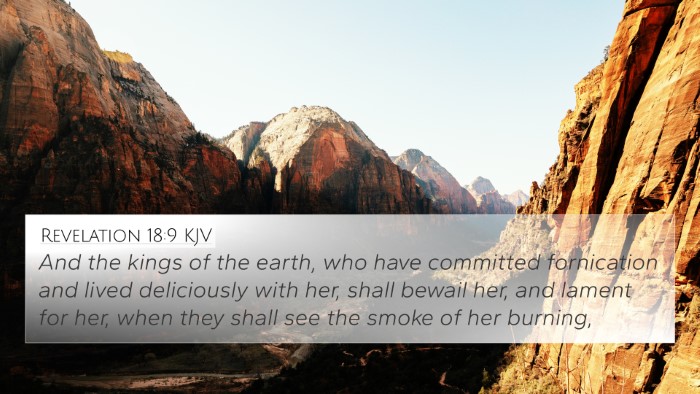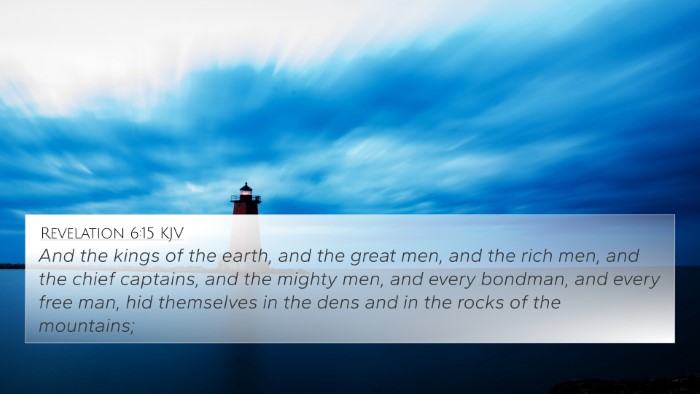Understanding Joshua 8:20
Joshua 8:20 states: "And when the men of Ai looked back, they saw, and, behold, the smoke of the city ascended up to heaven, and they had no power to flee this way or that way: and the people that fled to the wilderness turned back upon the pursuers."
This verse captures a pivotal moment during the Israelites' battle against Ai, showcasing the consequences of divine strategy in warfare. Let's delve into its meaning through various aspects drawn from esteemed public domain commentaries.
Context of the Verse
The broader context of Joshua 8 revolves around the Israelites' campaign against Ai following their previous defeat (Joshua 7). In this chapter, God provides direction to Joshua on how to conquer Ai effectively, using a stratagem that involves feigned retreat to lure the men of Ai into a vulnerable position.
Insights from Commentaries
-
Matthew Henry's Commentary:
Matthew Henry notes that Joshua's strategy reflects the importance of obedience to God’s guidance in battle. The ascent of smoke symbolizes the destruction of Ai and the Israelites' victory, demonstrating God's faithfulness to His people. Henry emphasizes the theme of divine assistance and the need for strategic planning aligning with God's will.
-
Albert Barnes' Notes:
Barnes highlights the fear and confusion experienced by the men of Ai upon seeing the smoke. The realization of impending doom leads the men to feel trapped, showcasing that the enemy was caught off-guard by the Israelites' cunning tactics. The verse illustrates the psychological aspects of warfare and God's role in orchestrating victory.
-
Adam Clarke's Commentary:
Clarke points out the significance of the smoke as a signal of destruction. The statement about having no power to flee underscores the totality of Ai’s defeat, reflecting the consequences of disobedience to God. Clarke observes that this scene reinforces the importance of fervent prayer and reliance on divine guidance before engaging in endeavors.
Thematic Connections
This verse opens up several thematic connections within the Bible and can be explored through cross-referencing.
- God’s Sovereignty in Battle: The ultimate control God has over the outcomes in warfare is evidenced in Bible verse cross-reference: 2 Chronicles 20:15, where God fights for His people.
- Victory Through Obedience: Bible verse cross-reference: Deuteronomy 20:4 encapsulates the principle that God delivers Israel in battle when they heed His instruction.
- The Power of Fear: Bible verse cross-reference: Isaiah 41:10, where God reassures His people against fear, resonates with the psychological panic that the men of Ai faced.
- Consequences of Sin: The events leading to the battle against Ai stem from Israel’s sin in dealing with the accursed thing (Joshua 7:1) and emphasizes the relationship between obedience and national destiny, much like Bible verse cross-reference: Romans 6:23 describes the wage of sin.
- Divine Assistance: Reflections on God helping those who trust in Him reveal parallels in Bible verse cross-reference: Psalm 118:6, emphasizing the might of God over human foes.
- The Nature of Warfare: Ephesians 6:12 speaks of spiritual battles, paralleling the physical battles faced by Israel against their enemies.
- Strategic Warfare in God’s Plan: The tactical retreat and ambush at Ai mirrors principles found in Bible verse cross-reference: Proverbs 24:6, emphasizing wisdom in planning.
- Destruction and Revelation: The smoke rising signals catastrophe and reflects on the fate of the wicked seen throughout scripture, like in Bible verse cross-reference: Revelation 14:10.
- Repentance and Redemption: The cycle of disobedience leading to realization of defeat, and then to redemption through God's mercy, is also mirrored in stories like that found in the Book of Jonah (Jonah 3).
- Covenantal Promises: The fulfillment of God’s promises to Israel throughout their history can be reflected on through the mandate in Bible verse cross-reference: Joshua 1:3.
Practical Applications
As we reflect on Joshua 8:20 and its implications, several practical applications emerge:
- Understanding the importance of seeking divine guidance before undertaking significant endeavors.
- Recognizing the psychological aspects of conflict, both personally and spiritually.
- Emphasizing the need for repentance and obedience as a foundation for experiencing God’s victory in our lives.
- Learning the value of strategy, wisdom, and foresight in approaching challenges.
- Trusting in God’s sovereignty over circumstances, reaffirming faith in His promises and deliverance.
Conclusion
Joshua 8:20 serves as a significant narrative of divine intervention and strategic victory through God’s prescribed methods. The insights drawn from trusted commentators further illuminate the depth of understanding available through careful study and cross-referencing. By examining connections between scripture, we find enriched meanings that cross time and application, guiding us in our spiritual walk and understanding of God's eternal truths.
Further Study and Cross-Referencing Tools
An essential aspect of deepening your understanding of Biblical texts lies in using cross-reference tools:
- Utilizing a Bible concordance to find related verses.
- Employing comprehensive Bible cross-reference materials for thematic studies.
- Engaging in interactive cross-reference Bible studies to uncover rich connections.
- Exploring identifying connections between Old and New Testament to see the continuity of God's plan.
- Interested readers may begin with a Bible cross-reference guide for a structured approach.
By incorporating these methods into your study, you can develop a nuanced understanding of scripture and enjoy the richness found in the interconnectedness of the Bible.
